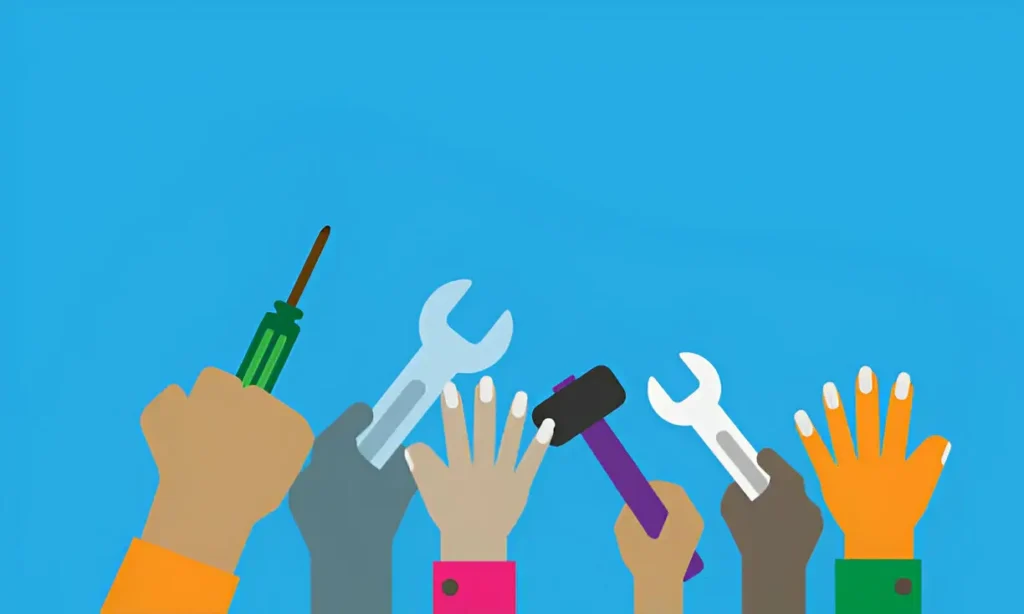Social workers are integral to our communities, advocating for vulnerable populations, addressing societal issues, and providing essential services to individuals and families. The role is demanding, requiring both compassion and skill, along with the right tools to navigate the complexities of each case. Empowering social workers involves not only training and education but also providing them with the essential tools to perform their work effectively.
From digital resources to hands-on equipment, the right tools can make a world of difference in a social worker’s ability to achieve positive outcomes. Here are some of the most essential tools that every social worker should have in their toolkit.
1. Case Management Software
Case management software is one of the most valuable tools for social workers, especially in the digital age. It helps streamline the process of documenting and tracking client interactions, managing case notes, scheduling appointments, and ensuring that all relevant information is easily accessible.
Tools like Apricot, Social Solutions, and CaseWorthy allow social workers to efficiently manage their caseloads, monitor progress, and create reports that are often required by funding agencies or regulatory bodies. With cloud-based case management systems, social workers can securely access client information from anywhere, ensuring that they have the data they need at their fingertips while on the go.
2. Collaboration and Communication Tools
Social work frequently involves collaboration with various professionals, such as healthcare providers, educators, law enforcement, and more. Effective communication and teamwork are essential for addressing clients’ needs. Tools like Slack, Microsoft Teams, and Zoom offer secure platforms for social workers to connect with colleagues, clients, and external partners.
Additionally, video conferencing tools like Zoom have become invaluable for remote work, allowing social workers to hold virtual meetings with clients, community organizations, and other professionals, ensuring uninterrupted support even during challenging times. Mental health electronic health record (EHR) systems also play a crucial role in this collaboration, providing secure access to important client information and facilitating more coordinated care.
3. Assessment Tools
Accurate assessments are critical in social work to understand a client’s needs and create effective intervention strategies. Tools such as Strengths and Difficulties Questionnaires (SDQ) or the Beck Depression Inventory are designed to help social workers assess mental health conditions, behavioral issues, and overall well-being.
Other assessment tools might include those for child abuse investigations, addiction screenings, or risk assessments. These tools help social workers collect objective data, which is vital for both developing care plans and providing evidence for court cases or funding requests.
4. Resource Databases
For social workers to provide the best support to their clients, they need easy access to available resources, from food assistance programs to mental health services. Resource databases like Aunt Bertha and FindHelp are invaluable tools for finding local, state, and national programs that can assist clients in need.
These platforms offer an easy way for social workers to locate housing options, healthcare services, legal aid, educational programs, and more—all in one place. Having a comprehensive resource database allows social workers to connect clients with the help they need without spending valuable time researching.
5. Mobile Apps for On-the-Go Support
Many social workers spend a large portion of their time out in the field, meeting clients in homes, schools, hospitals, or other community settings. Mobile apps have become essential tools for these professionals. Apps like Evernote or OneNote help social workers keep detailed notes and capture ideas on the go.
Google Keep can be used for to-do lists and reminders, helping social workers stay on top of their tasks. Additionally, mobile apps such as Therap or CareSmart allow social workers to document interactions and keep track of client information from their smartphones or tablets, ensuring that no important details are missed when they’re away from their desk.
6. Cultural Competence Resources
Social workers frequently work with clients from diverse backgrounds, and understanding cultural differences is essential for providing effective support. Cultural competence resources such as Cultural Intelligence (CQ) tools and Diversity and Inclusion training programs can help social workers develop the skills necessary to interact respectfully and effectively with people from various cultural, ethnic, and socioeconomic backgrounds.
Having access to resources that promote cultural competence ensures that social workers approach each client with sensitivity and understanding, ultimately leading to better outcomes for clients.
7. Self-Care Tools
Social work can be emotionally draining, and burnout is a serious risk for professionals in the field. To prevent burnout and maintain their own well-being, social workers need tools that help them practice self-care. Apps like Headspace and Calm offer mindfulness and meditation exercises to help social workers manage stress.
Regular access to support networks, either through professional organizations or peer support groups, can also be invaluable. Establishing a strong self-care routine, such as regular physical exercise, healthy eating, and connecting with loved ones, is essential for sustaining a long and successful career in social work.
8. Training and Development Platforms
Continuous learning is vital in social work, as policies, best practices, and client needs are always evolving. Access to training and development platforms like Coursera, Udemy, or NASW (National Association of Social Workers) webinars allows social workers to stay updated on new practices, technologies, and theories.
Whether it’s a new therapeutic approach or a workshop on mental health law, these platforms ensure that social workers remain equipped with the latest knowledge and skills necessary for their roles.
In Conclusion
Empowering social workers means providing them with the right tools to do their job effectively and efficiently. From case management software and communication tools to assessment resources and self-care practices, these essential tools support social workers in delivering high-quality care to their clients. With these tools at their disposal, social workers can better navigate the challenges they face, build stronger connections with clients, and ultimately make a greater impact in their communities. By ensuring that social workers are well-equipped, we’re helping to foster a more compassionate, responsive, and effective social work profession.
Also Read-Minimizing Treatment Discomfort with High-Tech Solutions
